By Uran Kalakulla
Part twenty-five
Nazism and communism
Memorie.al / Nazism lasted 12 years, while Stalinism lasted twice as long. In addition to many common characteristics, there are many differences between them. The hypocrisy and demagogy of Stalinism was of a more subtle nature, which was not based on a program that was openly barbaric, like Hitler’s, but on a socialist, progressive, scientific and popular ideology, in the eyes of the workers; an ideology that was like a convenient and comfortable curtain to lie to the working class, to lull the sharpness of intellectuals and rivals in the struggle for power.
One of the consequences of this peculiarity of Stalinism is that the entire Soviet people, its best, capable, hardworking and honest representatives, suffered the most terrible blow. At least 10-15 million Soviets lost their lives in the KGB torture chambers, martyred or executed, as well as in the gulag camps and others like them, camps where it was forbidden to correspond (in fact, they were prototypes of the Nazi death camps); in the mines in the ice of Norilsk and Vorkuta, where people died of cold, hunger, crushing labor in countless construction sites, in the exploitation of forests, in the opening of canals and during transportation in leaded wagons, or in the flooded barns of the death ships.
Continued from the previous issue
And what happened to this teammate of Hilmi was almost as shocking as the murder itself. We did not see the murder, but we saw the torture of this other coward. When the captains brought the unfortunate comrade before the commander, the brute in uniform rushed at him with all the fury of a beast and, with punches and kicks to the body and face, crushed the poor, completely innocent man, his hands tied with handcuffs behind his back, unable to save even his face. And, having made a fool of himself, he ordered his guards to catch him and throw him into the nearby lime pit. The captains threw the poor peasant into the pit.
After breaking the thick ice with their boots, they pushed him into the pit up to his chest. Only after this kind of commander, having blown all his animal fur and, having cursed us all again as dirty as before, gave the order to resume work. What if nothing had happened?! While we each went to our work place, our friend remained handcuffed in the pit of icy water. And the depth cut his face like a razor.
The working hours that day lasted ten or twelve hours, instead of the usual eight hours. We had started work at six in the morning, almost in the dark, and entered the camp, from there at four o’clock or later. I remember that that day we ate lunch and dinner at the same time; the usual spoonful of langur and the dinner ration of water. Tired, frozen and desperate, after the evening roll call, we entered the bunkers and each of us collapsed in pain, in our miserable beds.
Since the forces had already emptied the cursed work facility, the fence with the guards had also been lifted. They had also taken our friend from the lime pit and had put him, tied and plastered, in the underground dungeons of the building where we were sleeping. Only later, very late, did we see that they had taken the unfortunate man from the dungeon and allowed him to lie down in his own bed. Some of his friends and acquaintances had boiled half a bucket of tea and given it to him to drink. Then, after removing his frozen clothes, they rubbed his body with alcohol and put him to sleep.
Of course, great help was provided by the doctor, the honorable Ylli Xhagjika, without whose help the innocent convict would probably have died that same day, like his teammate. Thus, in the foundations of that cursed factory, the blood of one of our comrades was shed, like that of many, many others before him, in all the works where political prisoners, from the South to the North, have shed their sweat and blood. The Rubik prison camp was, in the truest sense of the word, an international camp. Because, besides us Albanians of “old Albania”, as the Kosovars called it, there were plenty of them too.
There were also Albanians from Montenegro and Macedonia, who were called Yugoslav citizens. There were also Yugoslavs, of Slavic nationality, such as: Macedonians, Montenegrins, Croats, and Serbs. There were also Greeks, not counting the Chams who (of course) lived in Albania and were Albanian nationals and citizens. I remember the names of some of them well, such as: the Montenegrin Velko Stepanović, the Croatian Mihajllo Prebeg, two Macedonians, Ljubo Strezovski and Ljubo Panov, two Serbs, Jovica Cervenko and a certain Boro. As for the Greeks, I only remember one, Taso Sevastidhis.
Among the Kosovar brothers, who were the most numerous among the non-Albanian citizens, the intellectual Shaban Basha, a young man with the surname Bajraktari, the brave Sitki Hoxha and a mentally ill person, named Mazllum Shishmani. The names of the others, unfortunately, I have forgotten.
I will start with our blood brothers, the Kosovars. These had fled their country and had entered here, to escape the yoke of the spies, as they call them, to this day, the Serbs. A typical name, with a great load of hatred and contempt that has been created not only in decades, but in centuries. And, undoubtedly, for this bitter fact, the Serbs themselves are to blame, especially when they became masters of more than half of the natural Albanian population, which gave them “whore Europe”, as the great Fishta called it, the imperialist Europe of the first quarter of the 20th century or, more precisely, the chancelleries of its largest states. And now, in addition to the schism, we also had Tito-Ranković communism.
The Kosovars who had crossed the border here, for the most part, were political refugees. They came here as their brothers, from “Mother Albania”, “Old Albania”, just as the Albanians of Macedonia or Montenegro, who had suffered the same bad fate as the Kosovars, as the Chams had suffered from the Greeks. They thought that here was paradise lost, that here was freedom, well-being, patriotism, anti-communism…!
But, as a well-known Albanian expression says, they came here for the fur and came out shorn. They had truly believed the propaganda and demagogy of Albanian radio, whose waves reached Kosovo in particular, but also Macedonia and Montenegro. They were very impressed by the newly created hostility of Enver Hoxha’s government towards Tito and Rankovic. And, for those who had communist illusions, also the “loyalty” to Marxism-Leninism, loyalty to the Soviet Union, to “the great comrade Stalin”, who was our God on earth.
And I want to believe that those poor Kosovars, when they heard that at the head of Albania was an Enver Hoxha, moreover a Muslim, that Albania had a strong government, with an army armed to the teeth, allies of the great Soviet Union, that is, of a superpower, their minds were filled with balls, they crossed the border and came here with hopes and illusions. How could they know that Enver Hoxha’s government was exactly the one that had given Kosovo to Tito himself, like a ram roasted in a big pan, a gift for the honor that this Tito had done Hoxha and his friends to become “statesmen”, when they had been nothing but the bottom of Albanian society.
Now, this was the drama, or rather the tragedy of the Kosovar emigrants in Albania. Coming here, they were faced with an alternative: either to become security spies (even against their friends), or to end up in prison, as they ended up. Even the emigrants and other non-Albanians, especially those of Yugoslav nationality, were lied to. Of course, not out of patriotic sentiment, but out of loyalty and the illusion of the justice of Albanian communism, for Marxism-Leninism, all the more so as an ally and brother (albeit a smaller one), of the great socialist camp, from which Tito’s Yugoslavia had already been vociferously excluded.
Shaban Basha was a man of average height, strong, with a handsome face, aged a little over fifty. He was a true intellectual, with a complete, all-round cultural formation. As a young man, he had completed the military academy in Italy (I think the one in Modena), where he had graduated with excellent results. Moreover, he had also taken a separate course, as a postgraduate specialization, which was called “application”, I think it was two years, to become a staff officer. But for which army and which staff? Of course, the Albanian one, because, as is known, at the time of the fascist-Italian occupation, Kosovo was returned to Albania. And Shaban Basha wanted to be a member of the new and joint Albanian, national army, even though both of these Albanian lands were under Italian rule.
Because most Albanian intellectuals at that time hoped that the Italian rule in our country was temporary, when the Second World War was on the verge or had just begun. Shabani had deep knowledge, especially in mathematics and physics, in addition to other military disciplines, about which I do not know what to say at length. But he also had a lot of knowledge in philosophy, economics and sociology. He also knew the history of the world, especially the European one, well. He knew the history of our nation even better. In his cultural formation, the foreign languages that he knew well, such as Italian, French, English and German, had necessarily helped him, not counting Serbian of course. But he always preferred to speak Albanian together, with his chosen Kosovar dialect:
Shabani was a hardened patriot, like every Kosovar and his ideal; his heart had ethnic Albania at its center, and necessarily in the foreground the liberation of Kosovo from Serbian slavery. Unfortunately for me, we did not get along with Shabani for long. The day of his release came and, as we learned after some time, he returned to Kosovo, where, not long after, he was appointed professor at the Pristina gymnasium, where he taught mathematics and physics. And since then I have heard nothing more about him. Sitki Hoxha from Gjakova, was about my age. So still a young man. He was somewhat short in stature, not like Kosovars usually are: tall, men and women, completely Illyrian race. At least that’s what historians say about them.
Sitki was a close cousin of the Kosovar communist leader Fadil Hoxha. Both Kosovar and communist, it seemed to me that this did not suit Fadil at all! But what the hell, his job! Apparently, due to the influence and training of Fadil and Sitki, much younger than him, he had joined the partisan mountain and by the end of the war, he had the rank of lieutenant. But the Kosovar blood had quickly done its work and with the break between Tito and Stalin, Sitkiu, like many others, Kosovars and Yugoslavs, had kept running in Albania. And the Albanian communists had taken him straight to internment, in the Lushja district, apparently because Sitkiu, much more than a communist, was Albanian, Kosovar, therefore a staunch patriot, a convinced nationalist. And the road from internment to prison was not very long.
Internment was the entrance to prison
When I met Sitkiu in the Rubik prison camp, he had served many years in prison. He had been brought there from the Burrel prison. Although already very suffering, as a strong man who was spiritually, he faced all difficulties, both seriously and with determination. He even had a sense of humor. He laughed heartily when he recognized the funny.
Sitkiu, as a man of experience now, was not in the habit of speaking openly about problems. He hated, despised spies and did not want in any way to fall prey to those jackals with human faces. But, with what he trusted and had proof that he was serious and honest, he also opened up. He spoke with great disappointment and boundless hatred for communism, of whatever brand it was: Albanian, Yugoslav or Soviet.
From the turbulent life that Sitkiu had lived, it could not be said that he had a complete cultural formation, like Shaban Basha, for example, but he was a close friend of books, although he liked to talk more about the “culture of life” than about that of books. And what impressed me most about Sitkiu was a perfect spiritual balance, which you rarely saw in the mass of prisoners. He associated with anyone who was a good person and, despite this, he greeted everyone. I do not know of any case that he got angry or upset with anyone. Therefore, everyone had respect for him: good or bad.
On one of the many days, in the morning, (it was a Sunday), they gathered us. We thought it would be an appeal with cards that was made to us at least every two weeks. But, no. It was a political conference, which was usually held by the commissar. These “conferences” were intended to “re-educate” us, too deeply understand the “mistakes” we had made, to return to the path of the Party and, after licking the soles of Comrade Enver’s feet, to become his spies and follow him with slavish loyalty, until our death!
What was this request of the command (meaning the Ministry of the Interior, or more precisely the State Security or more precisely the party), for our “re-education”? What were we to be re-educated? Scoundrels, thieves or pederasts? But the latter, were they re-educated by suffering the daily violence of prison? In a word: to imprison you for life, to chain you up, to insult and beat you whenever I feel like it, to put you on a starvation diet, to work your soul and, after all this, to mutter some stale words about the Party and Comrade Enver and you to be “re-educated”, to become Enver! As if we did not know who Enver had been, before he became a communist! By faith, those who sought our re-education either had themselves indulged in the fun, or they were the ones to be tied up like madmen.
Or it was a disgusting mockery, a kind of sophisticated and diabolical torture. But it could also have been a kind of separate investigation, examining how we would react on our faces, to their political mumblings: some ironic smirk, some whisper in the ear, where either mockery or indignation would be visible; any direct question to our “educator”; any open and harsh debate with him, which ended with the questioner or the disputant being tied to iron bars there, beaten, put in a dungeon for a month, and then transferred to the Burrel prison, and it was like the ninth circle of Dante’s hell.
That Sunday we were “lucky” to have “commander” Bamka himself give us the political lesson. We did not know that this Bamka was also our theorist, besides beating, a torturer and a murderer. So we are educators, we are executioners. What did not happen under the Hoxha regime! And Bamka the “politician”, as a Finnish Mirditori mocked began his theoretical-political “speech” with great pleasure.
– “Listen here, you rascals! The Party (because it didn’t say party), feels sorry for you. And especially Comrade Enver, he can’t sleep well because of your troubles. What did you want, you rascal who went to prison? Why didn’t you stay like the rest of the people under the great umbrella of the Party, under the warm sun that Enver Hoxha gives off, but came here to eat your heads, you dogs and sons of dogs”!
Here Commander Bamka’s temperature kept rising towards the boiling point. And he continued: – “Hey, what do you think? That Enver Hoxha is getting angry with you? He has no pity for Tito, or for Khrushchev, or for American imperialism. He has only one friend, Mao of China. And he has only that one friend, no one else! And let America and the Soviet revisionists with their scoundrels, together with Tito, if they wanted, touch the borders of Enver Hoxha’s Albania! They will eat their heads. We will let the dogs eat their intestines. We will make them eat their own shit, you motherfuckers! And you too, who keep your hope in those scoundrels!”
After this strong storm full of threats to America and the Soviets, he began to curse the Greek monarcho-fascists, the neo-fascists of Rome and, of course, Tito and all his followers. In a moment he cut off the momentum and asked suddenly:
– “Hey, where is that lieutenant of Tito’s, that vile Udebavac, the one who is also a Kosovar, partisan? What is his name, hey, Adem?” Ademi was the head of the notorious technical office and… it is clear what he was. Ademi, with great readiness, told him Sitkiu’s name. Well, Sitkiu had indeed been a lieutenant after the partisans, but he had not even approached the Titoist UDB in the slightest. Sitkiu stood up: frowning, of course a little pale on his face (because he knew what awaited him), but courageously, without batting an eye and in a loud voice, he said:
– “I was a partisan and not a UDB member”.
– “Oh, you filthy traitor!” – Bajrami replied. – You son of a bitch!”
– “You are a traitor!”
– “Tie up the dog and bring it here!” – The “commander” ordered, foaming at the mouth (as usual), in rage. Two or three captors attacked, grabbed the poor Sitkiu, tied him up, tied his hands with irons, squeezing his hands with the corners of his cap to the point of zero, and took him to their commander. Then the beast rushed at him with kicks and punches, as much as it had, bleeding him and pulling out all his wildness, as it had done with that poor peasant, before they threw him into the lime pit. And, after that, dragging him, they put the bleeding Sitkiu into the dungeon, while we there, powerless witnesses to do anything to help our good and honest friend, remained standing, with lemons on our faces. And so, that meeting of our “political education” ended!
The other Kosovar, with the surname Bajraktari, was a very handsome boy, with the stature of a sapling. He too had come with the illusion of “Mother Albania” and, instead of her, had found not a stepmother, but a real stepfather. And that is why he was among us, in that cursed place, there on the banks of the Fan River. I don’t know how much schooling this boy had, but I remember his sweet face and an attitude that was serious for his age, even that of a gentleman. He must have come from a good family. He had a great thirst for knowledge. I almost always saw him with a book in his hand and he liked to be with mature men who seemed to him to be the best, but also when they introduced him to another Kosovar, with whom he spent more time. Perhaps one of these had ordered him to approach me too.
And so he did, but with great nobility, as if he came from a family of English aristocrats. Well, he was only the son of a peasant. His courtesy (and that of many others like him) made a great impression on me. Even more so when I saw that, although citizens of Denbabad, even from the mentioned cities of our country, sometimes behaved like thugs. It was, therefore, the behavior of this young man that made me welcome his acquaintance and company. And so we talked about the history of our nation, about the folk epic, mainly the Kreshnik epic, because it attracted him the most. But also about other socio-economic problems. As much as I could and as much as I knew, I tried to broaden his horizons as much as possible.
And I noticed with pleasure that my word, not only did not go astray, but took root, even took root in his conscience. Of course, our main topic was patriotism. He was very pleased when I told him that one of the factors that encouraged and made possible the independence of Albania (albeit truncated), was the uprising and war of Kosovo with Isa Boletini at the head in 1909-1910 and 1911.
I noticed that his face smiled from a deep pleasure that he felt in his soul. But, once, we even ate. And the boy did not want to retreat in any way. The question was which would be the common capital, after the natural unification of Kosovo with Albania, when it was freed from the Serbian yoke, Tirana or Prishtina? Give and take and the boy in his own way. And so we left this conversation: without concluding, without reaching a “historical compromise”./ Memorie.al




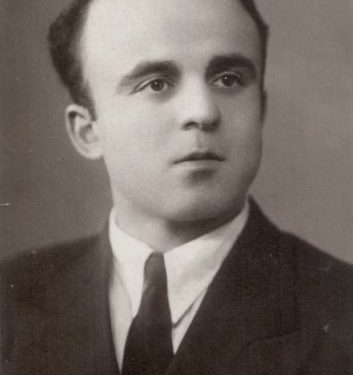
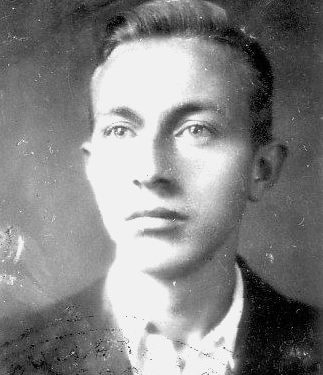
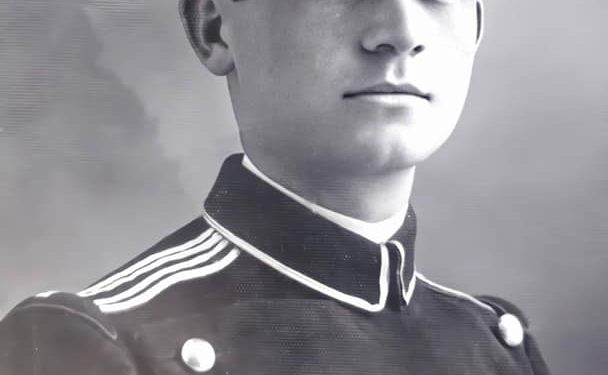
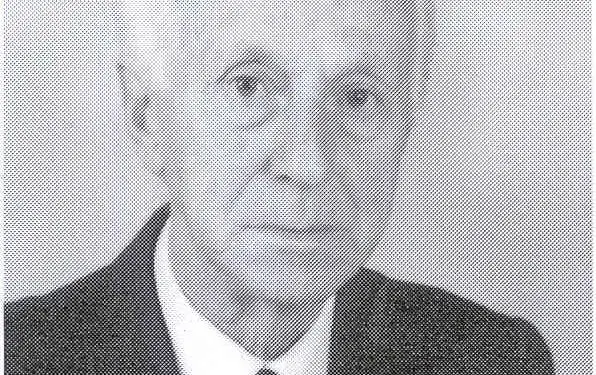
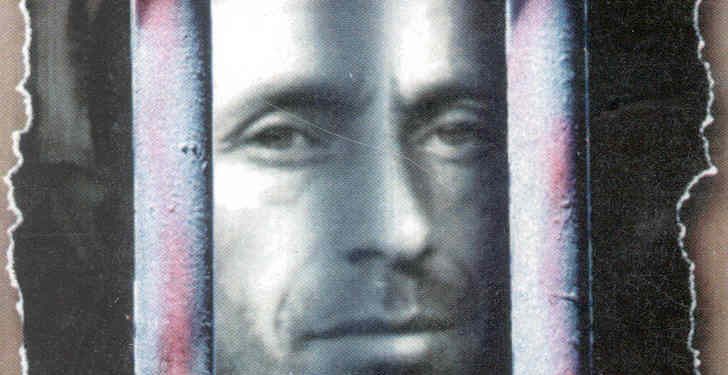
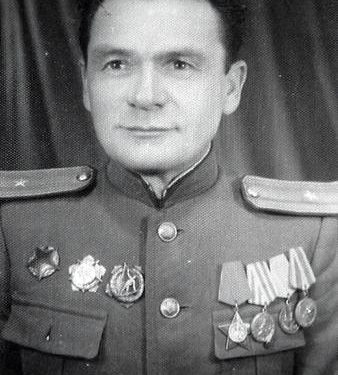
![“The ensemble, led by saxophonist M. Murthi, violinist M. Tare, [with] S. Reka on accordion and piano, [and] saxophonist S. Selmani, were…”/ The unknown history of the “Dajti” orchestra during the communist regime.](https://memorie.al/wp-content/uploads/2026/02/admin-ajax-3-350x250.jpg)
![“In an attempt to rescue one another, 10 workers were poisoned, but besides the brigadier, [another] 6 also died…”/ The secret document of June 11, 1979, is revealed, regarding the deaths of 6 employees at the Metallurgy Plant.](https://memorie.al/wp-content/uploads/2026/02/maxresdefault-350x250.jpg)




